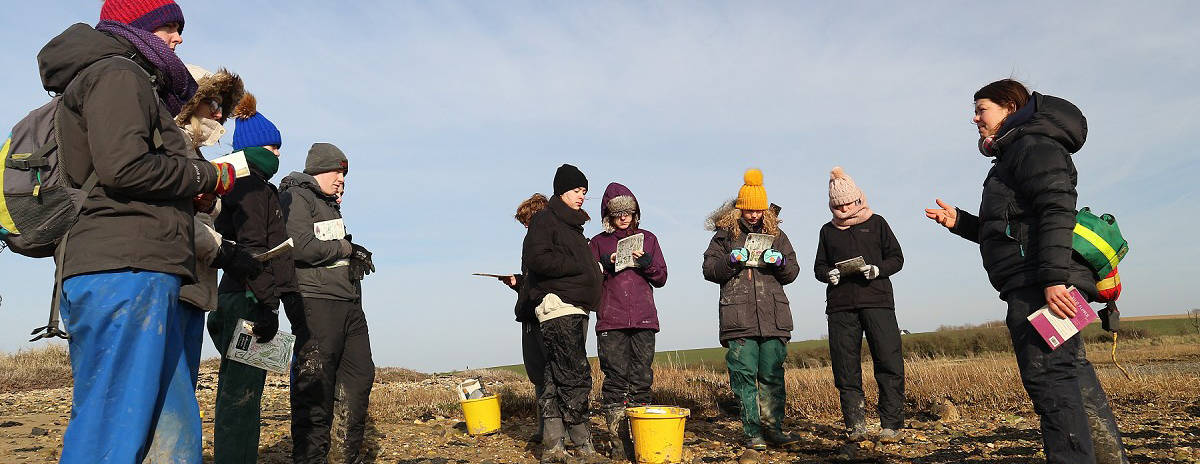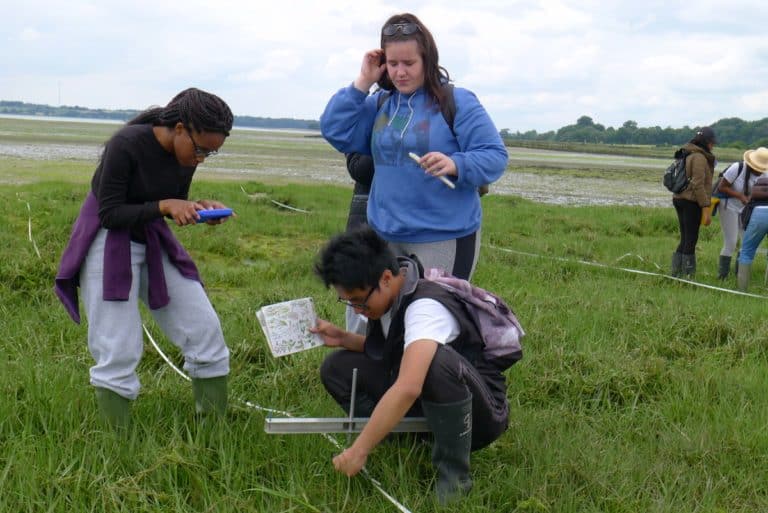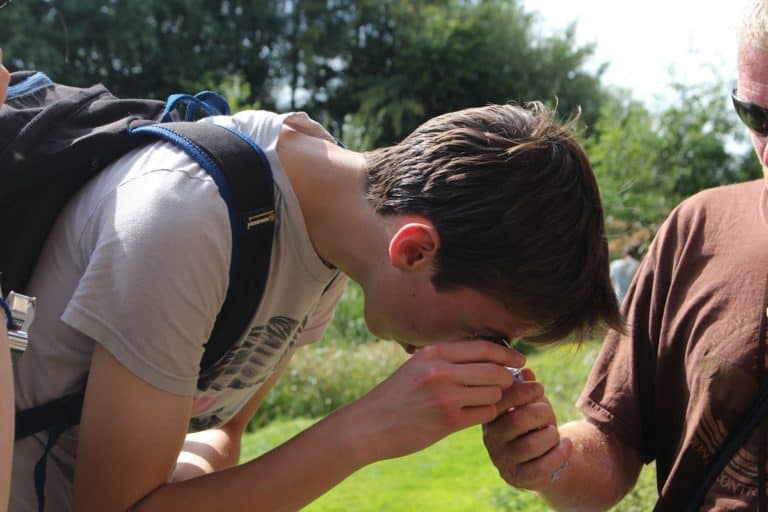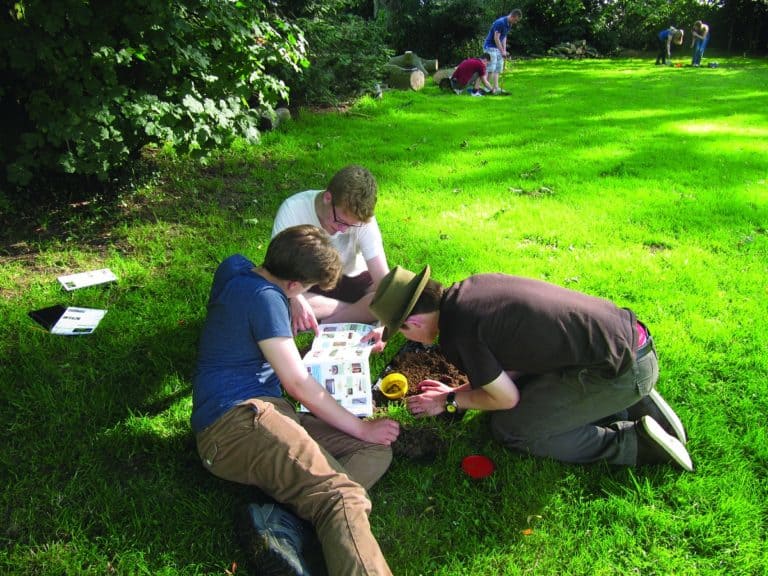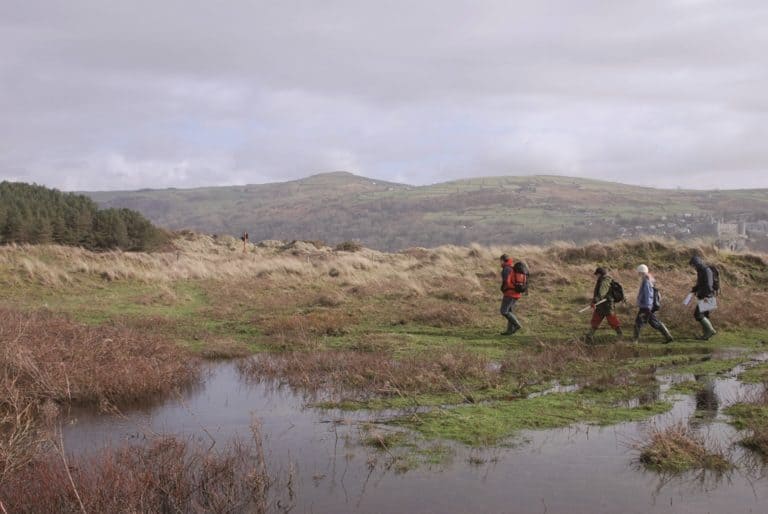We know it is important for you as teachers to be able to choose the most relevant techniques and skills for your students to get the best out of their trip.
The biology fieldwork courses at our centres are tailored to A Level, Higher or IB specifications with relevant syllabus content and practicals.
Our expert tutors create and deliver biology experiences to suit your requirements.
Topics covered at our locations
We can create a residential trip to cover the skills and topics that suit you:
Immersion in Ecology
A half day introductory session which is used to immerse, engage and inspire students in ecological skills and environments. Current ecological ‘hot topics’ and synoptic links are introduced, and students are challenged to question the world around them.
Relevant practicals that could be covered:
- Edexcel B Core Practical 15
Introduction to Ecology
In this session the basics of the ecology toolkit will be covered, including sampling skills and key terminology. Students will consider the scientific route to enquiry in an ecological context.
Relevant practicals that could be covered:
- Edexcel B Core Practical 15
Biodiversity
In this full or half day session students will use random sampling to compare two habitats, calculate species diversity and investigate variation within a species using Student’s t-test. This could be done in various habitats, including rocky shore, woodland, heathland or moorland depending on the centre visited.
Relevant practicals that could be covered:
- OCR PAG 3.1
- Edexcel A Core Practical 10
- Edexcel B Core Practical 15 / 16b
- Relevant Eduqas/WJEC specified practicals around biodiversity and variation
Transect Sampling
A full day session investigating either zonation, succession or trampling using systematic sampling. Students will measure abundance and distribution of species, and analyse the data using Spearman’s rank correlation coefficient. Options include rocky shore zonation; salt marsh, sand dune, shingle ridge, scree or freshwater succession; and woodland rides or grassland trampling studies.
Relevant practicals that could be covered:
- AQA Required Practical 12
- OCR PAG 3.2 / 3.3
- Edexcel A Core Practical 10
- Edexcel B Core Practical 16 (a and b)
- Relevant Eduqas/WJEC specified practicals around transect sampling
Ecological Energetics
A half or full day session looking at energy flow and the efficiency of energy transfer within an ecosystem, either in freshwater or on the rocky shore, depending on the centre. Students will sample organism abundance to compare trophic structure in two contrasting habitats, using the chi-squared test of independence to analyse the data as well as calculating the efficiency of energy transfer between different levels.
Investigative Skills
This session allows students to hone the skills they have learnt throughout the course to plan, justify and carry out their own investigation. They will collect, process and analyse their own data, and research and reference their findings. This can be a full or half day session to suit requirements.
Relevant practicals that can be covered:
- AQA Required Practical 12
- OCR PAG 3 and 12
- Edexcel A Core Practical 10
- Edexcel B Core Practical 15 / 16 (a or b)
- Relevant Eduqas/WJEC specified practicals
IB Biology and ESS IA
Students studying IB Biology and ESS will have the opportunity to plan and carry out an ecological based investigation in the centre grounds or nearby habitats for Internal Assessment. Having formulated a research question and identified variables, students will design a methodology for the collection of data, which they are encouraged to trial, evaluate and modify as appropriate. Students will begin data analysis and write-up, using appropriate statistical tests.
Freshwater Pollution Study
In this session students will undertake an investigation into the effects of freshwater pollution, from either a point or diffuse source. Using either a stratified or systematic sample depending on the site, students will measure biotic and abiotic indicators of pollution and use appropriate statistical analysis and monitoring analyses such as BMWP scores to draw conclusions from the data.
Ecosystem Management and Conservation
A visit to a local site of conservation interest to consider how conservation of habitats is balanced with human needs. Topics discussed may include the reasons for maintaining biodiversity, management of succession, sustainable resource management, international and local conservation agreements to protect species and habitats, and in-situ and ex-situ conservation techniques.
Other Practicals and Techniques
Other practicals and techniques which may be included throughout the course or as stand-alone evening sessions under discussion with the centre:
- Chromatography
- Choice chambers (OCR PAG 11, AQA RP10)
- Classification activity
- Data logging
- Mammal and/or moth trapping
- Mark, release, recapture
A personalised approach
- Courses link specifically to the curriculum and content can be tailored to suit your requirements
- A qualified tutor is assigned to each trip, to oversee your visit and create a bespoke friendly atmosphere
- Choice of UK centres so you can pick the best location for your school trip
- Accommodation on residential trips is in comfortable centres of up to 150 beds, allowing us to offer a personalised service
- All food is provided on school residential trips and many course activities are based on site
Tried and trusted provider
- We have 80 years’ experience delivering secondary school trips
- Each year, 165,000 people visit FIeld Studies Council centres
- Our sites are all risk assessed
- All our centres have the Learning Outside the Classroom’s Quality Badge so there is less paperwork for you
- Outdoor learning with us helps deliver a broad and balanced curriculum as required by Ofsted

